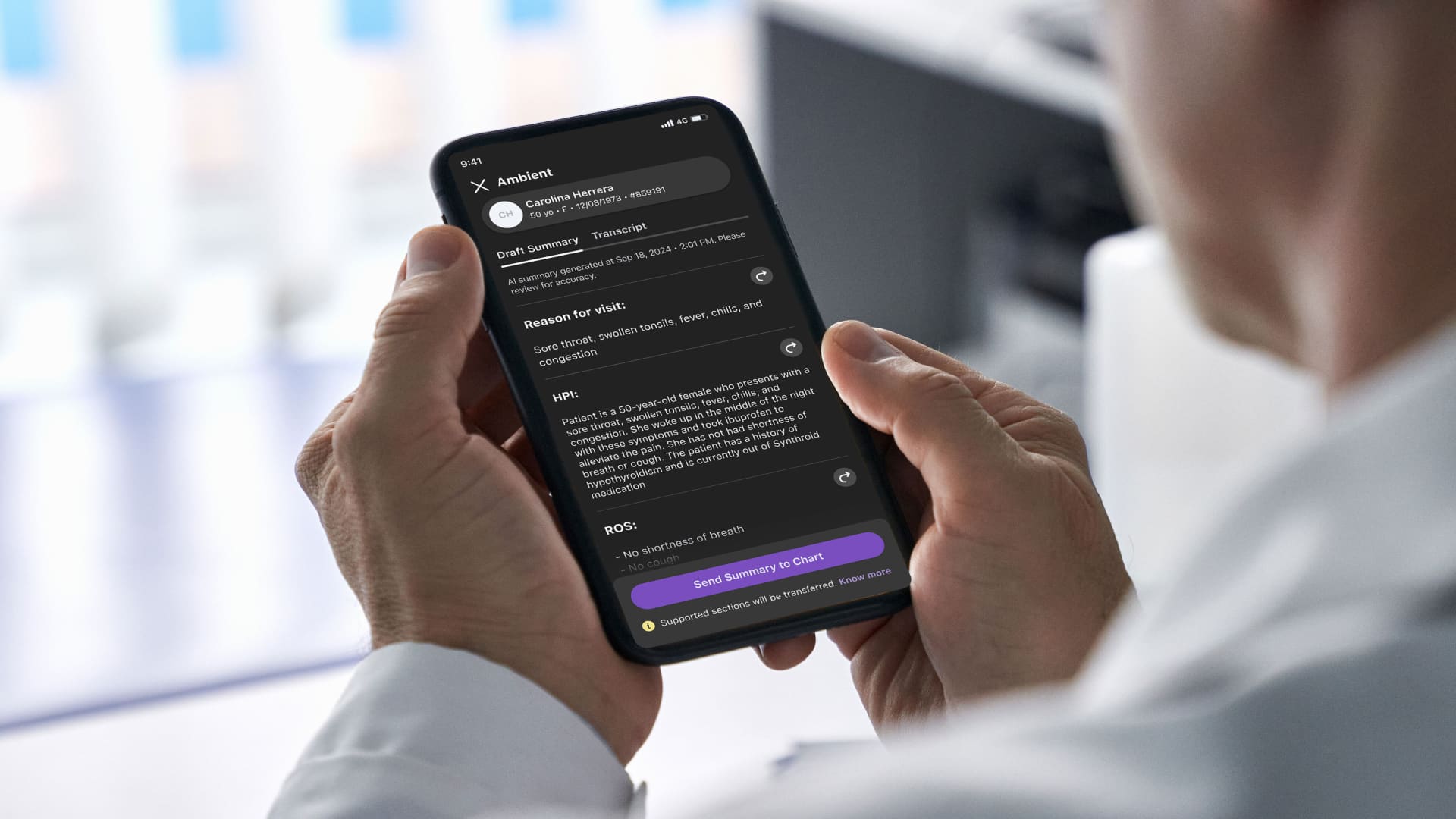Athenahealth Partners with Abridge to Transform Medical Documentation with AI Technology
In an era where technology is revolutionizing various industries, healthcare is no exception. Athenahealth, a leader in cloud-based services for healthcare systems, has taken a significant step forward by partnering with Abridge, a company known for its innovative AI scribe technology. This collaboration aims to transform medical documentation, making it more efficient and accurate, ultimately allowing healthcare providers to devote more time to patient care. This article delves into the implications of this partnership and how AI technology is set to reshape the landscape of medical documentation.
Understanding the Need for AI in Medical Documentation
Medical documentation has long been a burden on healthcare providers. The process of recording patient interactions, treatment plans, and health histories can be tedious and time-consuming. Physicians often find themselves spending hours after patient visits completing paperwork instead of focusing on what truly matters: patient care. This inefficiency leads to physician burnout and diminishes the overall patient experience.
The integration of AI technology, particularly through Athenahealth’s partnership with Abridge, seeks to alleviate this burden. By utilizing advanced AI scribe technology, the goal is to automate much of the documentation process, allowing healthcare professionals to streamline their workflows.
The Role of Abridge’s AI Scribe Technology
Abridge’s AI scribe technology is a game-changer in the realm of medical documentation. It utilizes natural language processing (NLP) and machine learning algorithms to transcribe conversations between healthcare providers and patients automatically. Here’s how it works:
- Real-time Transcription: The AI listens to the conversation during patient visits, capturing key details and findings without interrupting the flow of dialogue.
- Contextual Understanding: The technology is designed to understand medical terminology, ensuring that the captured information is accurate and relevant.
- Data Structuring: Once the conversation is transcribed, the AI organizes the information into structured data formats that can be easily integrated into electronic health records (EHRs).
This technology not only enhances the accuracy of medical records but also reduces the time doctors spend on documentation. With Abridge’s AI scribe, healthcare providers can focus more on patient interactions, fostering better communication and care.
Benefits of the Partnership for Healthcare Providers
The partnership between Athenahealth and Abridge brings several advantages to healthcare providers:
- Increased Efficiency: By automating documentation, physicians can complete their clinical tasks more quickly, freeing up time for additional patient consultations.
- Improved Accuracy: AI reduces the likelihood of human error in documentation, which is crucial for maintaining patient safety and ensuring compliance with healthcare regulations.
- Enhanced Patient Engagement: With less time spent on paperwork, providers can engage with patients more meaningfully, leading to improved patient satisfaction and outcomes.
Impact on Patient Care
The implications of this partnership extend beyond just operational efficiency. The transformation of medical documentation through AI technology has the potential to significantly enhance patient care. Here’s how:
- Personalized Care: With more time available to interact with patients, healthcare providers can tailor their care approaches to individual needs, fostering a more personalized healthcare experience.
- Better Follow-up: Accurate documentation allows for more effective follow-up care, as providers can quickly reference past interactions and treatment plans.
- Informed Decision Making: With comprehensive and accurate records, healthcare providers can make better-informed decisions regarding patient care, leading to improved health outcomes.
Challenges and Considerations
While the benefits of Athenahealth’s partnership with Abridge are clear, it is essential to consider potential challenges as well:
- Data Privacy: The use of AI in healthcare raises concerns regarding data security and patient confidentiality. Ensuring that patient data is protected from breaches is paramount.
- Integration with Existing Systems: For the AI technology to be effective, it must seamlessly integrate with existing EHR systems. This may require significant investment and resources.
- Training and Adoption: Healthcare providers will need training to adapt to new technologies. Resistance to change can hinder the successful implementation of AI tools.
Future of AI in Healthcare
The partnership between Athenahealth and Abridge is just one example of how AI technology is beginning to reshape the healthcare landscape. As AI continues to evolve, its applications in healthcare are expected to expand. Future developments may include:
- Predictive Analytics: AI could analyze patient data to predict health outcomes and recommend preventative measures.
- Telemedicine Enhancements: AI technology could improve telehealth services by providing real-time analysis during virtual consultations.
- Research and Development: AI can assist in clinical research by analyzing vast amounts of data to identify trends and potential breakthroughs in treatment.
Conclusion
The partnership between Athenahealth and Abridge marks a significant milestone in the evolution of medical documentation. By integrating AI technology, healthcare providers can streamline their processes, enhance patient care, and ultimately transform the way healthcare is delivered. As the industry continues to embrace technological advancements, the potential for improved outcomes and increased efficiency in healthcare is immense.
This collaboration not only reflects the ongoing commitment to innovation within the healthcare sector but also highlights the importance of prioritizing patient care. By leveraging AI, Athenahealth and Abridge are setting a precedent for the future of medical documentation—one that places patients and providers at the heart of healthcare transformation.
See more WebMD Network



